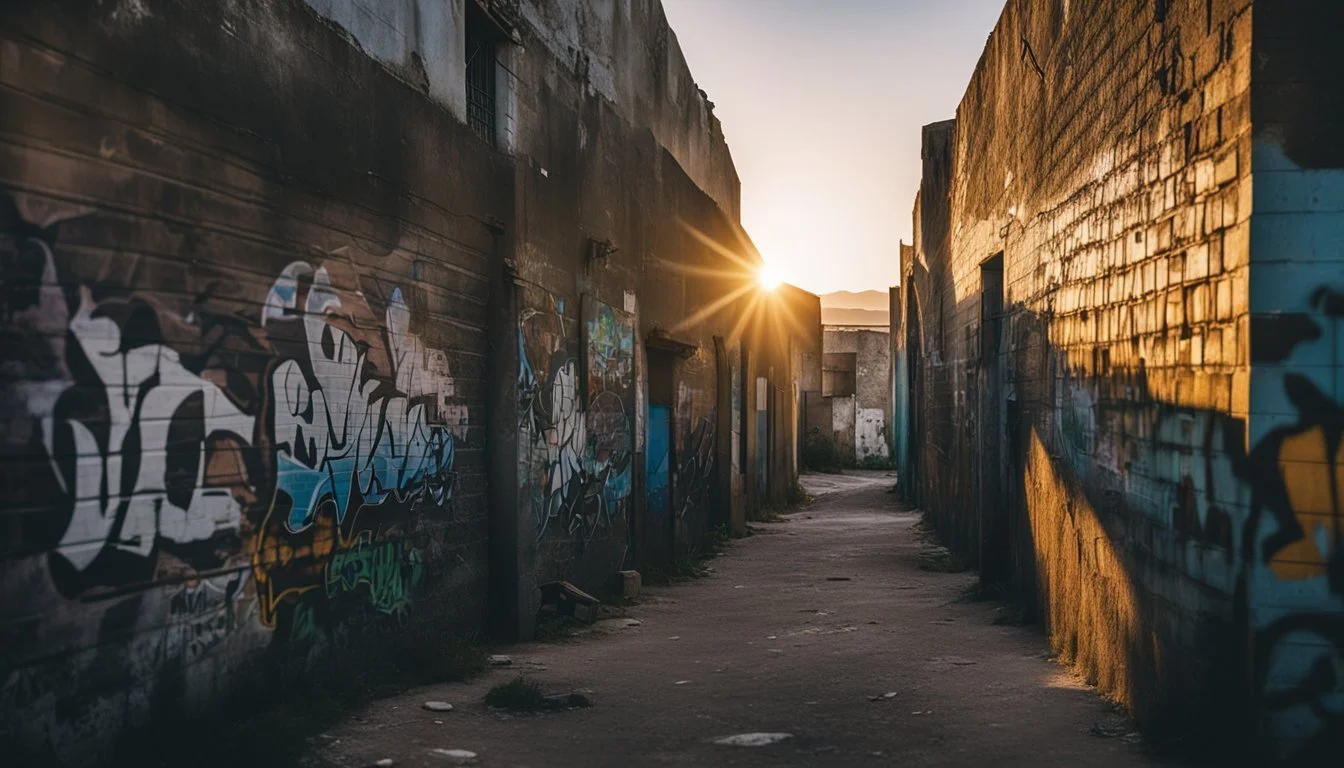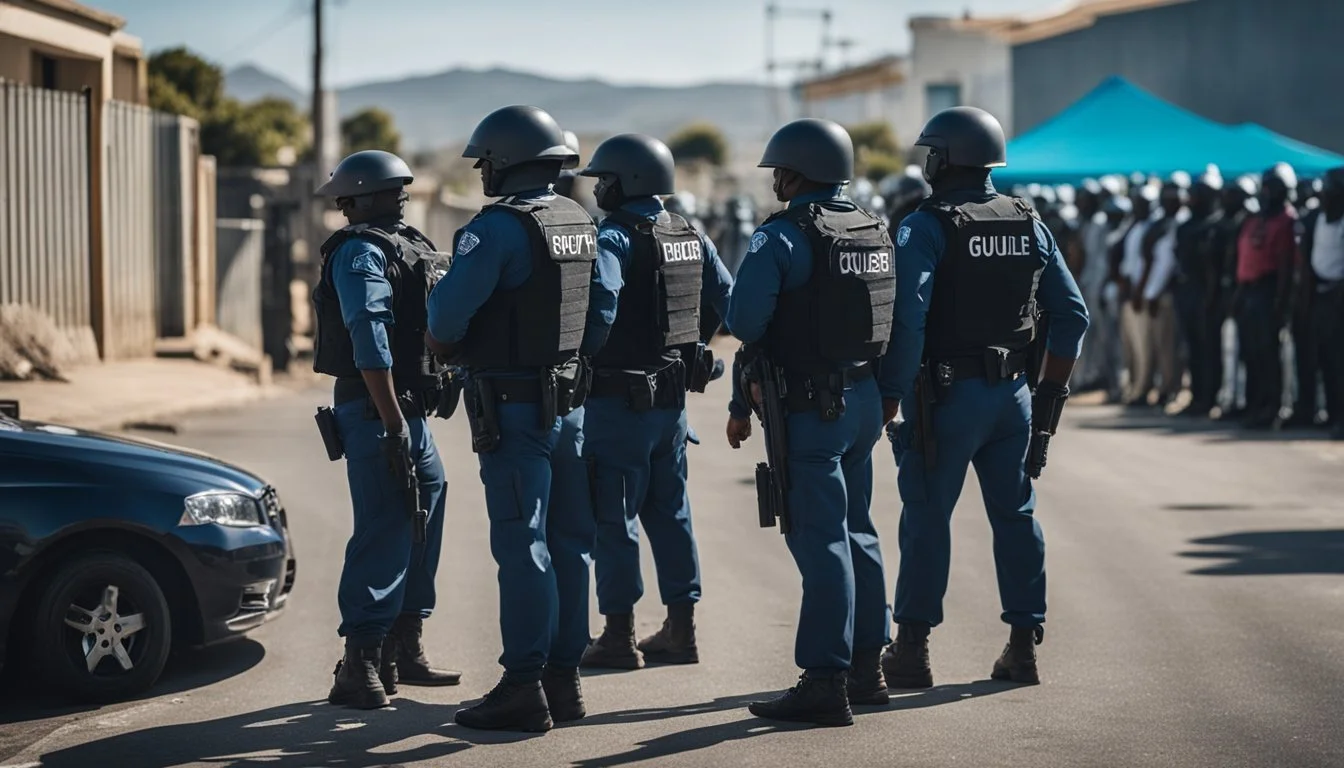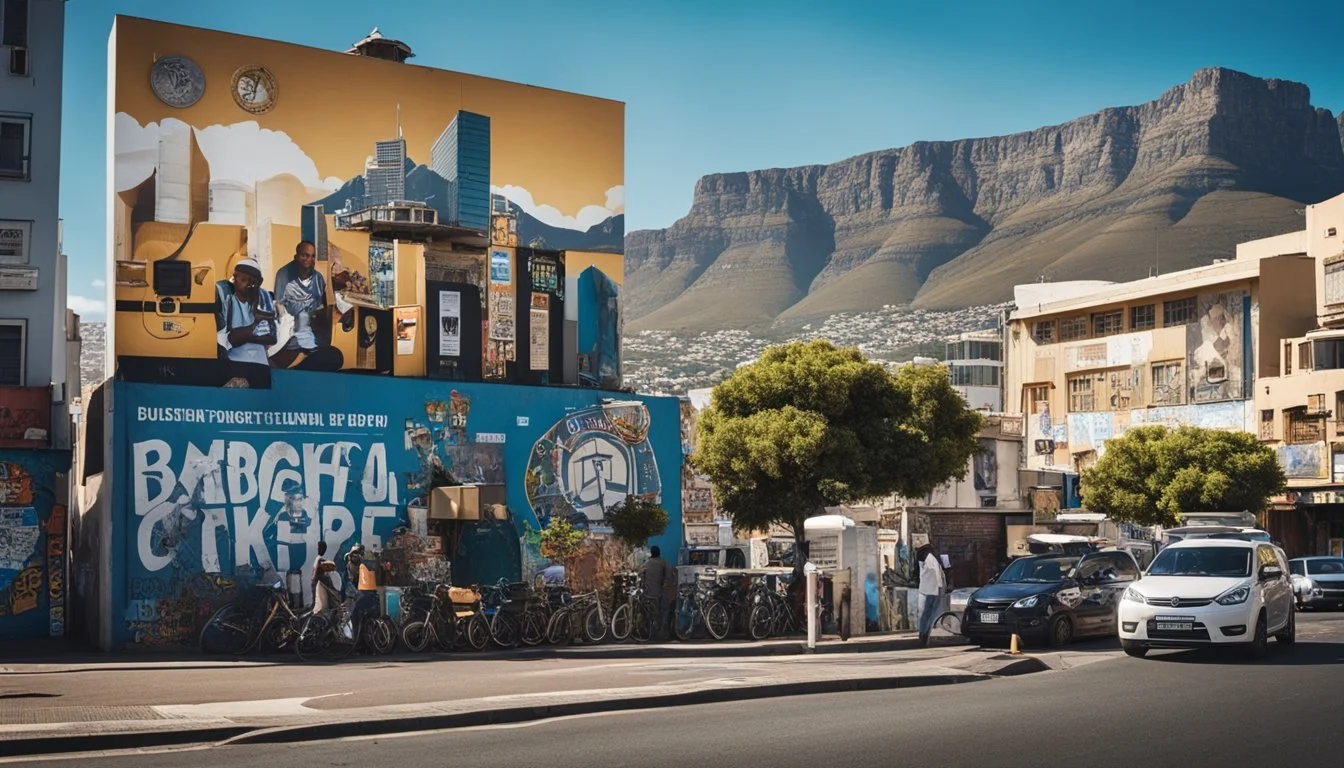6 True Crime Documentaries Based in Cape Town You Can't Miss
Cape Town, a city known for its breathtaking landscapes and rich history, also harbors a darker side that has been meticulously documented through various true crime series. These documentaries offer a unique glimpse into the criminal underworld and provide an unflinching look at the city's ongoing struggles with crime and justice.
Why are these documentaries essential viewing for true crime enthusiasts? They delve into real-life stories, presenting detailed investigations and personal accounts that bring Cape Town's complex social issues to the forefront. By focusing on actual events, these series allow viewers to gain a deeper understanding of the challenges faced by both the communities and law enforcement in this iconic South African city.
1) Episode 1: The Waterfront Heist (2024)
Episode 1: The Waterfront Heist explores a high-stakes robbery that took place in Cape Town's bustling V&A Waterfront. The documentary starts by introducing the main perpetrators, a group of seasoned criminals who meticulously planned the theft for months.
Detailed interviews with law enforcement officials provide insight into the complexity of the heist. The thieves exploited security loopholes and coordinated their efforts to evade capture, showcasing a high level of criminal sophistication.
The episode includes dramatic reenactments of the heist, creating a vivid picture of the events as they unfolded. Key witnesses and investigative journalists contribute their perspectives, adding depth to the narrative.
For more information on the series, visit the IMDb page.
2) Episode 2: The Cape Town Strangler
In the second episode of Catch Me a Killer (2024), the focus shifts to the notorious Cape Town Strangler, a serial killer responsible for the deaths of at least 22 children during the 1980s and 1990s in the Cape Flats area.
Viewers get an in-depth look into the investigation led by Chris and AJ. They delve into the methods used by the killer, the challenges faced by law enforcement, and the societal impact of the crimes.
The episode also investigates Norman Simons, a teacher convicted of the murder of Elroy van Rooyen. Known as the Station Strangler, he became eligible for parole in July 2023 and was released in November of the same year under strict supervision.
Though Simons' connection to the other murders remains speculative, this episode explores the circumstantial evidence and public perception that have kept the case alive in public memory. The show uses interviews with experts and footage from the time to present a comprehensive view of one of Cape Town's most infamous criminal cases.
For more details, visit IMDb.
3) Episode 3: The Bishop Lavis Kidnappings
Episode 3 of this true crime documentary focuses on a notorious kidnapping case in Cape Town's Bishop Lavis neighborhood. Recently, a 26-year-old shopkeeper was kidnapped, leading to the arrest of four suspects.
The suspects appeared briefly in the Bishop Lavis Magistrate's Court. The case has attracted significant media attention. The suspects face charges related to kidnapping and extortion, highlighting the grim realities of crimes in specific areas.
This episode dives into the investigation processes and courtroom procedures. Viewers gain insight into the work of law enforcement in Cape Town. The case was postponed for a bail application, showcasing the meticulous pace of judicial proceedings.
For more information on the case covered, visit News24's article.
4) Episode 4: The Devil's Peak Murders
Episode 4 of the documentary series takes an in-depth look at the infamous Devil's Peak Murders. Set against the backdrop of Cape Town’s striking Devil's Peak, this episode recounts the harrowing series of events that captivated the nation.
The story begins with the discovery of multiple bodies found on the slopes of Devil's Peak, each victim sharing eerily similar circumstances. Investigators quickly identified a pattern, leading them to believe it was the work of a serial killer operating in the area.
This episode dives into the meticulous investigative work carried out by local detectives. It explores how forensic evidence and witness testimonies played crucial roles in piecing together the case. The narrative also looks at the societal impact of these crimes, highlighting the fear and paranoia that gripped Cape Town during this time.
Interviews with law enforcement officials and surviving family members offer a personal perspective on the tragedy. They discuss the challenges and breakthroughs in the investigation, providing viewers with a comprehensive understanding of the complexities involved in solving these cases.
The filmmakers employ a mix of archival footage, dramatic reenactments, and contemporary interviews to bring the chilling story to life. This approach ensures an engaging yet respectful portrayal of the real-life horrors that unfolded on Devil's Peak.
For an extensive look at this documentary, please refer to IMDB.
5) Episode 5: The Wynberg Stalker
Episode 5 of the documentary series sheds light on the chilling case of the Wynberg Stalker. This episode delves deep into the unsettling events that took place in Cape Town's Wynberg neighborhood.
The stalker terrorized residents for several months in the late 1990s. Victims were followed, harassed, and some even reported break-ins.
Local law enforcement faced immense pressure as they grappled to identify and apprehend the stalker. The documentary provides a thorough examination of the investigation, the challenges faced, and the eventual breakthrough that led to the stalker's capture.
The episode features interviews with victims, detectives, and local journalists. It also includes archival footage to give viewers a comprehensive understanding of the case.
For more information on the series, visit IMDb.
6) Episode 6: The Gugulethu Seven (2000)
The documentary "The Gugulethu Seven" investigates the tragic deaths of seven young black men in the Guguletu township of Cape Town. These men were targeted and killed by the South African Police on March 3, 1986.
Originally, the police claimed that these men were terrorists. This version of events was later scrutinized and challenged.
Directed by Lindy Wilson, the film scrutinizes the police's narrative. It reveals deeper insights into the anti-apartheid activities of these young men aged 16 to 23 and their brutal killing.
The documentary employs a mix of authentic footage and comprehensive investigative journalism. This approach lays bare the South African Police's methodologies and the apartheid regime's harsh realities.
The documentary aligns with the work of the Truth and Reconciliation Commission, which aimed to uncover and address past human rights violations.
For more information on this documentary, please visit IMDb: The Gugulethu Seven.
Historical Context of True Crime in Cape Town
Cape Town's crime landscape has been shaped by multiple significant crime waves and notable cases, each impacting the city's social and legal framework. Below, key moments and their repercussions are explored.
Major Crime Waves
Cape Town has experienced several major crime waves over the years. One prominent example is the gang violence that has plagued the city, particularly in areas like the Cape Flats. This violence often stems from turf wars and is fueled by illegal drug trade activities. These crime waves have seriously affected community safety and have drawn significant law enforcement attention.
Another significant crime wave occurred in the form of violent crimes, including armed robberies and assaults in the late 1990s and early 2000s. These incidents gave rise to increased measures by local law enforcement agencies to curb crime rates. Specialized units were formed, and community policing efforts became more prominent during these periods.
Notable Cases and Their Impact
In 2012, the Anni Dewani case drew international attention. Anni was a British tourist who was murdered in Gugulethu, a township near Cape Town, during her honeymoon. The case resulted in extensive media coverage and highlighted issues related to safety for tourists, as well as the efficiency of the South African judicial system.
Another case of significant impact was the Ziyaad Haywood case, where he confessed to being the "closet killer." This case underscored the severity of domestic violence and the need for better protective measures for victims within Cape Town.
High-profile true crime documentaries often investigate these cases, revealing the multifaceted nature of crime in Cape Town and emphasizing the challenges that law enforcement and communities continue to face.
Influence of Cape Town's Geography on Crime
Cape Town's unique geography, from its urban sprawl to its isolated rural areas, significantly shapes crime patterns. Key locations within the city often feature prominently in crime documentaries due to their distinct socio-economic dynamics.
Urban vs. Rural Crime Dynamics
Urban areas in Cape Town, particularly the townships and inner-city neighborhoods, experience higher crime rates. Dense populations, unemployment, and social inequality contribute to violent crime in these regions.
In contrast, rural areas face different challenges, such as limited police presence and infrastructure. Crimes in these regions often revolve around property and agricultural theft, rather than violent crimes seen in urban areas. The stark contrast between the two highlights the diverse nature of crime influenced by geographic and socio-economic factors.
Key Locations Featured in Documentaries
Several Cape Town neighborhoods are frequently highlighted in true crime documentaries.
Khayelitsha: Known for its high crime rates, this township is often featured due to prevalent gang activity and socio-economic challenges.
Cape Flats: This area, notorious for gang violence and drug-related crimes, is another common focus.
City Bowl: While generally safer, it shows how crime can affect even more affluent areas.
Each of these locations underscores how Cape Town's diverse geography influences the type and frequency of crimes documented.
Cultural and Sociopolitical Influences
True crime documentaries set in Cape Town reflect distinctive cultural and sociopolitical dynamics. They explore how socioeconomic conditions and media portrayal shape public perception and influence crime narratives.
Socioeconomic Factors
Cape Town's high crime rates tie closely to its unequal socioeconomic landscape. Communities face poverty, unemployment, and inadequate housing. These factors create environments where crime can thrive.
Gang violence is a significant issue. Many young people join gangs due to limited opportunities. This perpetuates a cycle of violence and instability.
Educational disparities further exacerbate the problem. Poor access to quality education limits upward mobility, contributing to ongoing crime issues.
Role of Media and Public Perception
Media plays a crucial role in shaping public perception of crime in Cape Town. Documentaries highlight the brutal reality of violence. They aim to raise awareness and prompt action.
Coverage often focuses on sensational cases, influencing how society views crime and safety. This can lead to heightened fear and mistrust.
However, ethical reporting is essential. Balanced portrayals can help foster understanding and drive meaningful change. Media should ensure accurate, empathetic storytelling that respects victims and communities impacted by crime.









